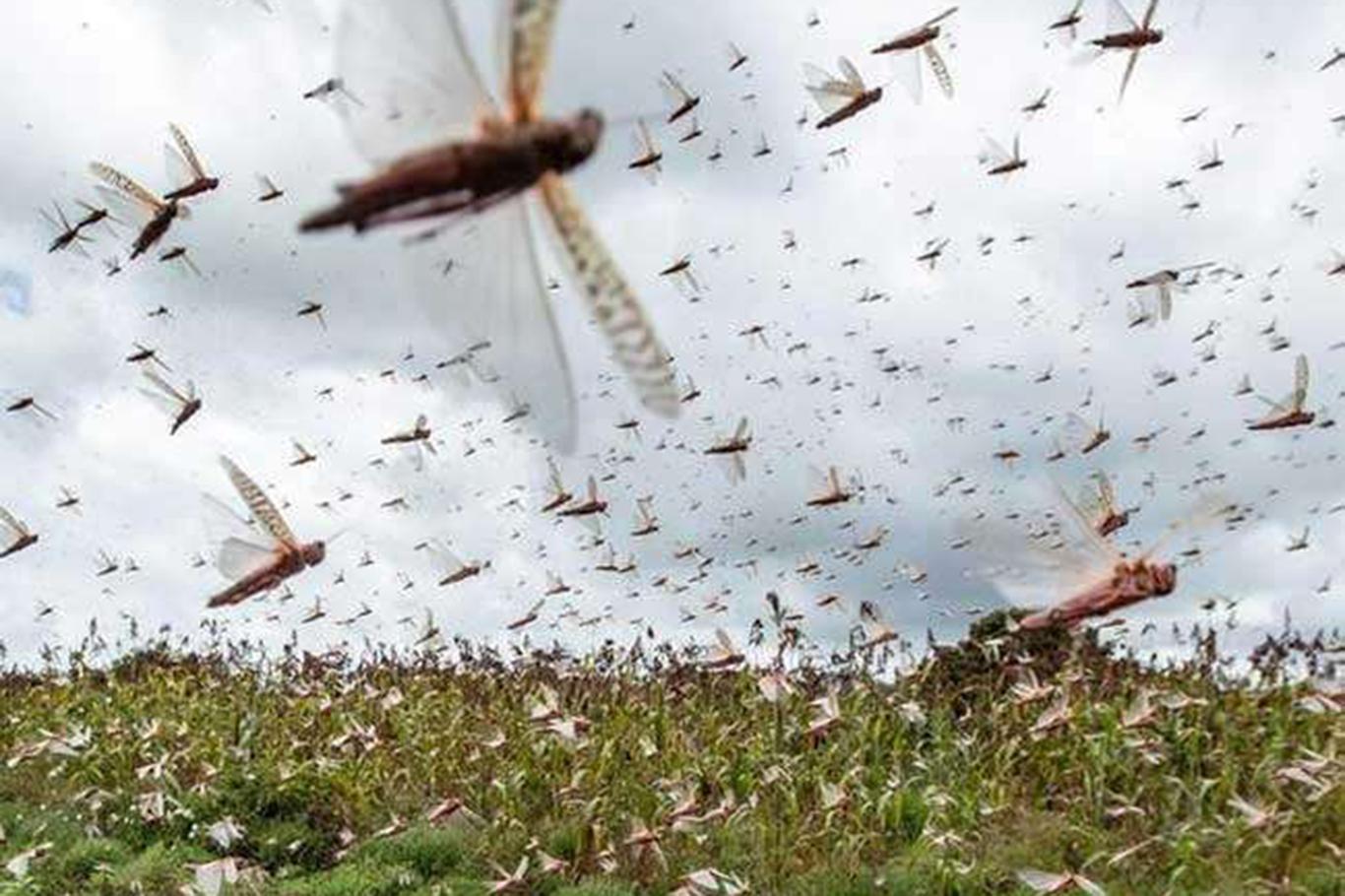An invasion of locusts has spread across Pakistan


The Pakistani government has decided to establish a National Grasshopper Control Cell against the swarms of locusts, which poses a serious threat to the economy, agriculture, and food security in the country.
Pakistan Information and Broadcasting Minister Shibli Faraz said the government has created a national strategy against the locusts and that the proposed cell is part of it.
Faraz pointed out that the government was aware of the current situation, adding that the swarms of locusts attacked the crops, impacting the livelihoods of farmers.
Faraz said: “We are afraid that there will be a huge threat of the locusts in July this year. The government is preparing for this.”
Faraz called on farmers to inform the relevant authorities immediately if the swarms of locusts reach the cultivated land, and pointed out that the intervention could be done earlier.
In its report published last month, the United Nations Food and Agriculture Organization warned the Pakistani government against the locust invasion and pointed out that it could cause billions of dollars loss to Pakistan's agriculture produce this year. (ILKHA)
LEGAL WARNING: All rights of the published news, photos and videos are reserved by İlke Haber Ajansı Basın Yayın San. Trade A.Ş. Under no circumstances can all or part of the news, photos and videos be used without a written contract or subscription.
Latvia has completed the construction of a 280-kilometer (174-mile) fence along its border with Russia, marking a major step in the Baltic state’s efforts to strengthen border security amid ongoing tensions with Moscow.
The Orphans Foundation (Yetimler Vakfı) has conducted a distribution of hot meals to vulnerable families in Yemen, providing much-needed relief in a country still grappling with one of the world's worst humanitarian crises.
Israeli occupation forces (IOF) abducted dozens of Palestinians, including a journalist, during a series of overnight and dawn raids across several areas of the occupied West Bank on Tuesday, according to Palestinian sources.
Afghanistan’s Deputy Prime Minister for Economic Affairs, Mullah Abdul Ghani Baradar, held talks with the Director of Iranian Railways, Jabbar Ali Zakari, focusing on strengthening economic relations and expanding trade cooperation between the two neighboring countries.